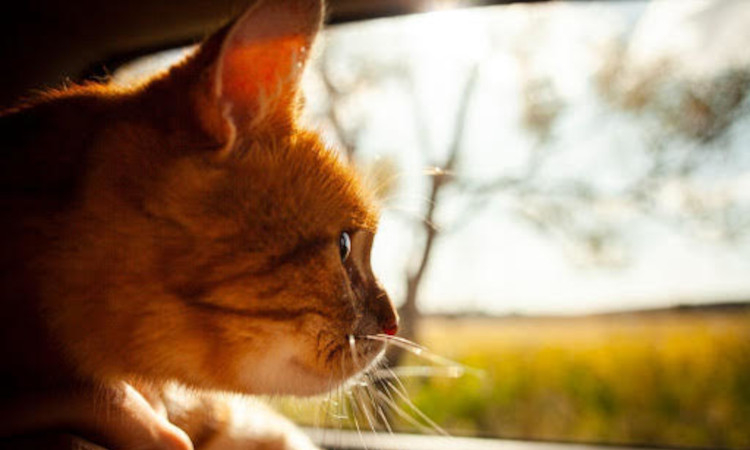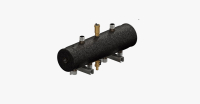Truckers spend a lot of time away from home, family and friends. Sometimes this causes feelings of anxiety and loneliness. Pets that are around can help alleviate this. The bond between a pet and a person can be just as tenuous as a family relationship. After all, many people consider their pet a family member for a reason.
More than 40% of truckers in the U.S. take their pets on the road with them. Almost every trucking company in USA these days is liberal about pets and riders and HMD Trucking is no exception.
The most common pet on the highway is a dog, which gives its owner the added benefit of increased safety. If the dogs are large enough, they may well be able to provide protection from an intruder, but any dog will definitely warn of approaching danger. Many owners sleep more soundly knowing that their faithful friend will alert them to any approaching danger. Moreover, the very presence of a dog can easily scare away potential criminals who go off to look for easier prey.
However, dogs are not the only pets for truckers. Cats are the second most popular, but in addition there are also reptiles, rodents and birds in the cabs. Some drivers just need to know that their companion is around, while others prefer to communicate with their pets closer, cuddle and pet them.
No matter what kind of animal you choose, you should prepare well for the new creature in the truck cab. Stock up on bedding, food, and other necessities before you begin your journey. On the road, your choices will be very limited, especially at truck stops and stores, and some products you won't be able to find at all.
Since many pets require periodic walks and potty breaks, you should plan for more stops. During these stops, the driver gets a chance to get some fresh air and do some simple exercise.
Water quality can vary from state to state. Some drivers give their pets bottled water. But this can be a costly practice if you are on the road. If your pet is large enough, it's better to stock up on gallon bottles bought at large stores than to buy more expensive and smaller bottles on the road.
Human food can be a treat for pets, but it is not the healthiest option for pets and can cause health problems. Find out what your pet's normal diet should be and stock up on food in advance so your pet stays on the proper diet for the duration of the trip.
Medical care is also very important for traveling pets. Make sure that your pet has been given all necessary vaccinations and prescribed medications. Because even over-the-counter medications like vitamins can be too difficult to find on the road.
Traveling pets also need to go to the bathroom periodically. Dogs and cats who are not toilet trained need a place to go for a walk. Some truck stops and rest areas have special dog walking areas for this purpose.
Outside the truck, every animal should be sure to be on a leash. Even the most well-mannered of pets can react acutely to the presence of other animals or the smells they have left behind. High-traffic areas, such as truck stops, can be deadly for untethered animals, who may begin to panic and cannot be brought under control.
Dog and cat harnesses provide more control than conventional collars. Some of these devices have built-in handles that can be used to pick up or control the animal if the need arises.
If your pet is not spayed or neutered, there may be additional troubles to think about.Such pets remain instinctively territorial and may sometimes show aggression toward other animals or even people. Moreover, un-neutered cats will have the urge to mark their territory, spraying urine all over the cabin of your car. These smells can be very difficult to get rid of, especially when it comes to bedding and carpets.
Also, don't forget about safety rules. Pets should never interfere with the safe operation of your car. Keeping a dog or cat on the driver's lap while driving is irresponsible. Also, having a pet wander on the floor near the driver's feet can interfere with clutch, brake and throttle control.












